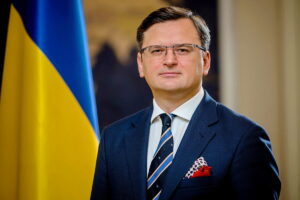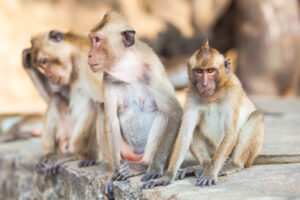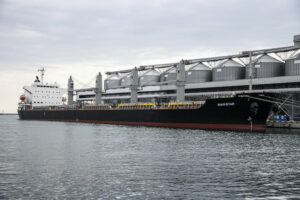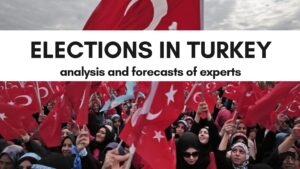
From May 15, the intervals between trains of the Kiev subway will be reduced, and second vestibules will be opened at some stations, according to the Kiev City State Administration
“From Monday, intervals between trains will be reduced on each subway line. The waiting time during peak hours on weekdays will be 3-4 minutes, during off-peak – 6-8 minutes. Also the interval between trains will be increased on weekends, during the day the interval between trains will be 6-7 minutes,” – said in a message of the KSCA in Telegram-channel on Friday.
At nine stations will work the second exits. At the station “Obolon” lobby number 1 will work (in the direction of “Minskaya” station). Concourse 2 will remain closed because of repairs.
Recall that “Akademgorodok”, “Darnitsa”, “Lesnaya”, “Minskaya”, “Pochayna” and “Vydubychi” stations have two exits.

Ukrainian Foreign Minister Dmytro Kuleba is planning a tour of Latin America in the second half of the year, during which he will visit a number of countries in the region.
“Guatemala had an unprecedented response to the full-scale invasion of Ukraine by Russia. We noticed it, and we will always be grateful. That’s why I’m here. But I’m planning a bigger Latin American tour in the second half of the year. And as part of that tour – I intend to visit a number of countries in the region,” Kuleba said at a press conference with Guatemalan Foreign Minister Mario Bucaro.
Kuleba noted that Ukraine now maintains an ongoing dialogue with many Latin American countries at the presidential and foreign minister level.
“For example, yesterday we hosted Celso Amorimo, Chief Adviser of the Special Consultative Service of the Brazilian Presidential Administration, in Kyiv,” the Minister added.
According to the head of the department, 2023 will be “a year of relations with Latin America” for Ukraine.
“You will hear a lot from us. And of course, we will be happy to hear a lot from Latin America and to host visitors from Latin America,” Kuleba said.

The World Health Organization (WHO), following the recommendation of an emergency panel on human monkeypox, has decided to no longer consider the disease a global health emergency, the organization’s director general, Tedros Adhanom Gebreyesus, said Thursday.
“I am pleased to announce that monkeypox is no longer a global public health emergency,” Gebreyesus said during a briefing.
He said a WHO emergency commission met Wednesday and concluded that the outbreak was no longer a threat of international concern and recommended that it be removed from that status. Gebreyesus followed that advice.
However, he noted that, as with the COVID-19 coronavirus, this does not mean that the work to control the disease is over. Monkeypox, according to the WHO chief, is still a serious public health problem.
Earlier in May, Gebreyesus said the WHO no longer views COVID-19 coronavirus as a particular threat to global health.
Monkeypox is a rare infectious disease most common in remote areas of Central and West Africa. Its symptoms include nausea, fever, rash, itching, and muscle pain.
The Club of Experts previously analyzed the likelihood of monkeypox becoming an epidemic. Read more at the link:

Ankara wants the Black Sea Grain Initiative to continue functioning, Turkish Defense Minister Hulusi Akar said Thursday.
“Our wish is that the grain agreement be extended,” Anadolu Agency quoted the minister as saying.
For its part, the country’s Defense Ministry tweeted that the talks on extending the “grain initiative” were positive and constructive.
In turn, the Ministry of Infrastructure of Ukraine said at the end of the negotiations that the “grain initiative” should be extended for a longer period and expanded.
“This will give predictability and confidence to both the world and the Ukrainian market. But, above all, it is necessary to resume the registration of the incoming fleet and inspections without artificial delays and in accordance with the procedures of the Joint Coordination Center,” the agency said on its Facebook page.
Participants of the initiative agreed to continue negotiations at the technical level. They will be extended in the online format.
“Black Sea Grain Initiative” was concluded in Istanbul on July 22, 2022 with the participation of the UN, Ukraine, Turkey and Russia to create a corridor for the export of grain from three Ukrainian ports: “Chernomorsk”, “Odessa” and “Pivdenny”. The initiative was concluded for 120 days and was extended twice, most recently on March 18. However, while Ukraine claims that it was extended for 120 days, Russia claims that it was extended for only 60 days.
he Club of Experts previously analyzed the political and economic situation in Turkey on the eve of the presidential and parliamentary elections, see more at the link:
Brazil has approved the candidacy of Ukrainian Deputy Foreign Minister Andriy Melnyk for the post of Ambassador Extraordinary and Plenipotentiary of Ukraine.
“The Brazilian government is pleased to announce that it has granted Mr. Andriy Melnyk an aggregate nomination for the post of Ambassador Extraordinary and Plenipotentiary of Ukraine to Brazil,” the ministry said in a statement on its website.
Earlier on May 10, Melnyk had a meeting in Kiev with Celso Amorim, chief advisor of the Special Consultative Service of the Brazilian Presidential Administration.
As reported, on July 11, 2022, Ukrainian President Volodymyr Zelensky fired Andriy Melnyk from the post of Ukrainian Ambassador to Germany. Melnyk had been Ukraine’s ambassador to Germany since 2014.

A new video on YouTube channel of the analytical center “Club of Experts” examined the options for the upcoming presidential and parliamentary elections in Turkey. Ukrainian experts expressed their opinions and gave forecasts regarding the political situation in this country.
Mohammad Farajallah, editor-in-chief of the Internet publication “Ukraine in Arabic,” stressed that the upcoming elections in Turkey are of great importance for the region and arouse the interest of the international community.
“Turkey is an important player on the world stage, and its domestic policy directly affects the situation in the region and beyond. Therefore, the results of the elections will be monitored with great attention,” he noted.
In turn, the founder of the Club of Experts, Maksim Urakin, Ph.D. in Economics, shared his vision of possible scenarios after the elections. He stressed that there are two main political forces fighting for leadership in Turkey: the Justice and Development Party (AKP) led by President Recep Tayyip Erdogan and the Republican People’s Party (CHP). Kemal Kılıcdaroğlu, allied with five other opposition political forces.
“Two scenarios are possible. If the AKP wins, we can expect a continuation of the policies Erdoğan has pursued in recent years, with a focus on enhancing domestic stability and strengthening Turkey’s position in the international arena. On the other hand, if the CHP wins, we may see a more pro-Western orientation and increased cooperation with the European Union and the United States,” the expert said.
According to Urakin, a win for either candidate in the first round is unlikely, and the winner of the presidential race will most likely be determined by a second ballot.
Both experts also noted the significance for Ukraine of the election results in Turkey.
“Ukraine has close economic and political ties with Turkey, so the election results will have a direct impact on our relations and cooperation. Over the last year, as a result of the war, trade turnover between our countries has decreased, but I believe that if the current political course is maintained, we can expect further development of trade and economic relations between Ukraine and Turkey,” said Maxim Urakin.
In addition, the expert cited statistics on exports from Ukraine to Turkey in 2022, according to which it has decreased significantly.
“Last year, the volume of Ukrainian exports to Turkey was about 3 billion dollars as opposed to more than 4 billion in 2021, that is, we see a drop of 29%,” Urakin said.
According to Mohammad Farajallah, in the current geopolitical situation Turkey is an important partner of Ukraine in various spheres, which include both military support (UAV Bayraktar, light armored vehicles) and cooperation in economy, energy and other spheres.
The expert also suggested that if the opposition wins, Turkey is more likely to join sanctions against Russia.
“Naturally, the new government will be as close to the West as possible and can be included in a common unified Western policy against Russia. This, of course, will be to our advantage. But these are just preliminary words for now, perhaps they (the opposition – ed.) will come, look at the numbers and continue Erdogan’s current policy,” said Farajallah.
It should be noted that on the eve of the voting, Erdoğan lags behind his main rival Kılıçdaroğlu by more than 5%, according to a poll published by the Turkish sociological center KONDA on May 11.
Thus, Erdoğan gets the support of 43.7 percent of respondents, while Kılıçdaroğlu gets 49.3 percent.
The poll also reveals that neither candidate gets more than 50% of the votes, which means that if these data are confirmed in the elections, the winner will be chosen in the second round, which is scheduled for May 28.
The KONDA polling service conducted personal interviews with 3,480 people in 35 provincial centers.
At the same time, according to other surveys, in particular the Istanbul-based Center for Operational Social Research (Yöneylem), Erdoğan’s party was supported by 35.2% of voters in the parliamentary elections and Kılıcdaroğlu’s CHP by 30.7%.
For more on Turkey’s elections, see the video:
Subscribe to the Experts Club channel by clicking here:
CLUB_EXPERTS, ELECTIONS, ERDOĞAN, MOHAMMAD FARAJALLAH, TURKEY, UKRAINE, URAKIN